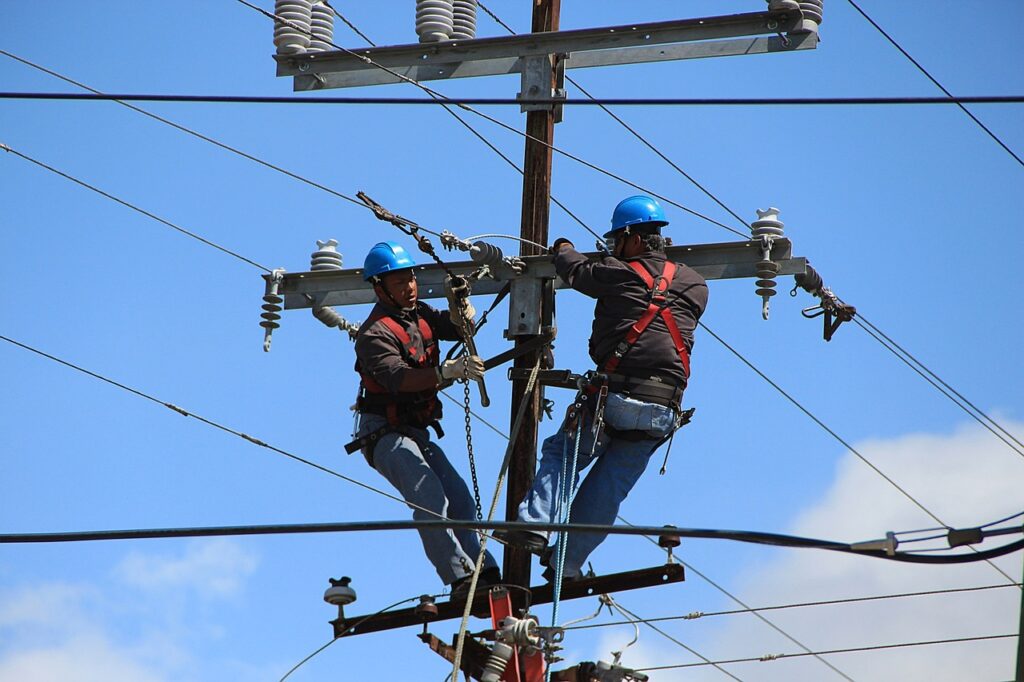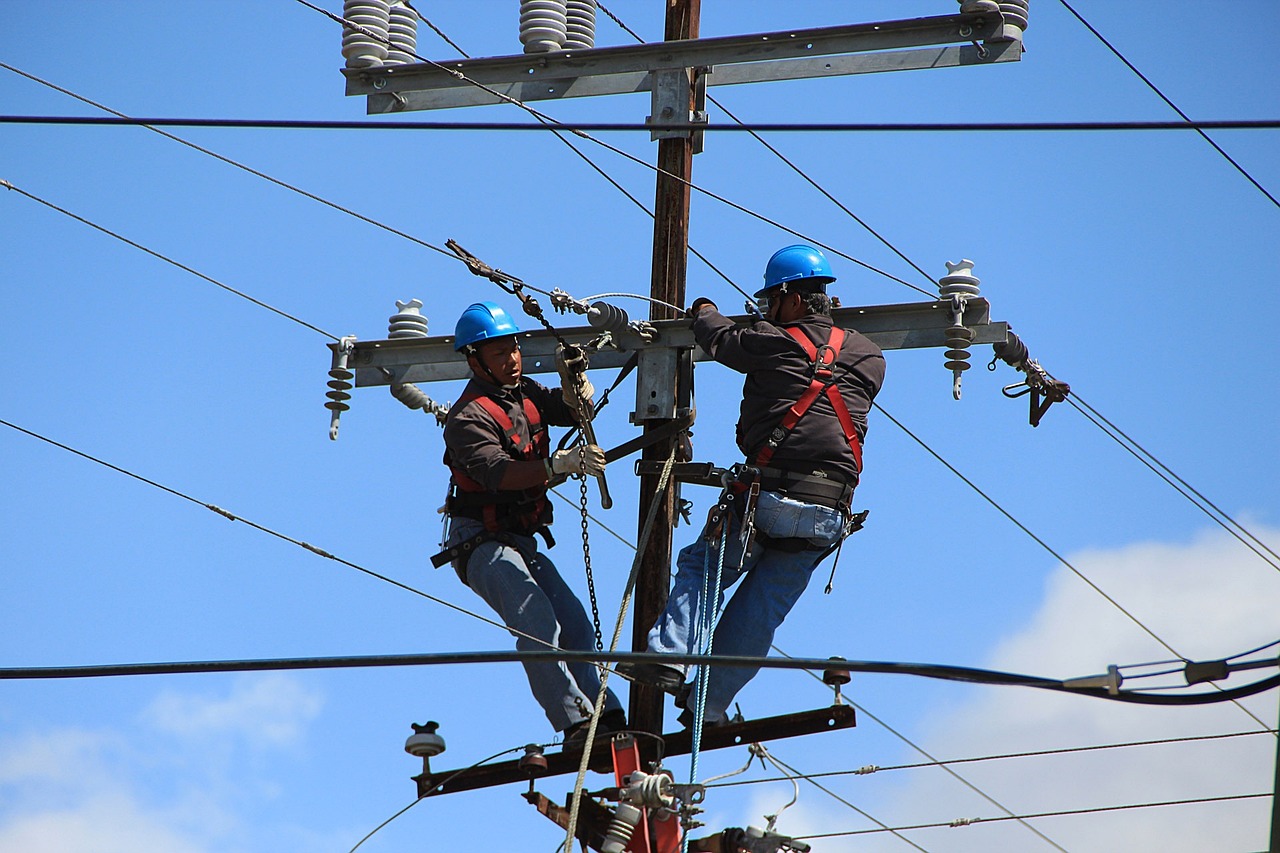Are you facing challenges with outdated wiring systems, inadequate electrical capacity, or disruptions in power supply? As a homeowner or business owner, rewiring your property can be a daunting task. But don’t worry, electric contractors are here to help you address these common rewiring challenges.
Electric contractors are professionals who specialize in installing, repairing, and maintaining electrical systems. They have the expertise, tools, and knowledge to diagnose and address any electrical issues you may be facing.
In this article, we’ll explore how electric contractors can help you overcome common rewiring challenges and ensure your property’s safety and efficiency. So, let’s dive in!
Outdated Wiring Systems
If you’ve got an older home with outdated wiring systems, you might want to pay attention to this. One of the most common rewiring challenges that electric contractors face is dealing with outdated wiring systems.
Homes that were built several decades ago may have wiring systems that are no longer up to code or are simply too old to handle modern electrical demands. To address this issue, electric contractors use upgrading techniques to bring the wiring system up to modern standards.
This may include replacing old wiring with new, more efficient wiring, upgrading circuit breakers to handle higher electrical loads, and installing new outlets and switches. Additionally, contractors must ensure that the updated wiring system is up to code compliance, meaning that it meets all safety and performance requirements set forth by local and national electrical codes.
By addressing outdated wiring systems with the appropriate upgrading techniques and ensuring code compliance, electric contractors can help homeowners avoid potential hazards and keep their electrical systems functioning properly.
Inadequate Electrical Capacity
You’re going to run into some serious issues if your electrical capacity isn’t up to snuff. Inadequate electrical capacity can lead to power outages, electrical fires, and other hazards.
Your home’s electrical capacity may be inadequate if you’re experiencing flickering lights, tripped breakers, or if you’re unable to use multiple appliances at once. In these cases, it’s essential to upgrade your circuits to ensure that your electrical capacity can meet your needs.
Electric contractors can help you upgrade your circuits to increase your electrical capacity. They can assess your current system and determine what upgrades are necessary to ensure that you have enough power for all your electrical needs.
This may include installing additional circuits, replacing outdated wiring, or upgrading your electrical panel. By working with an experienced electric contractor, you can ensure that your electrical system is safe, efficient, and up to code.
Don’t wait until you’re experiencing power outages or other hazards. Contact an electric contractor today to upgrade your circuits and improve your home’s electrical capacity.
Disruptions in Power Supply
To avoid disruptions in your power supply, it’s important to regularly maintain and update your electrical system. Disruptions in power supply can be caused by a variety of factors such as power surges, faulty wiring, or outdated electrical systems. These disruptions not only cause inconvenience but can also pose potential hazards such as electrical fires and electrocution.
One way to prevent disruptions in power supply is by installing backup generators. Backup generators provide a reliable source of power during electrical outages, allowing you to continue with your day-to-day activities uninterrupted. It’s important to have a licensed electrician install and maintain your backup generator to ensure it functions properly when you need it most.
By investing in a backup generator and regularly maintaining your electrical system, you can avoid potential hazards and ensure a reliable source of power.
Ensuring Safety Standards
Ensuring your safety should be your top priority when it comes to your electrical system, so don’t hesitate to hire a licensed professional for regular maintenance and updates.
One of the main challenges that electric contractors face is ensuring that the rewiring project complies with the up-to-date regulations and safety standards. A licensed electrician undergoes training and holds professional certifications to ensure that they’re knowledgeable about the latest safety practices and regulations.
Electricians follow strict safety protocols when working on rewiring projects. They use safety equipment such as goggles, gloves, and helmets to protect themselves and their clients from electrical hazards. Additionally, they make sure that all electrical connections are grounded and properly insulated to prevent shocks and electrical fires.
By hiring a licensed electrician, you can rest assured that your rewiring project is in good hands and that your safety is the electric contractor’s top priority.

Strategies for Efficient Rewiring Projects
If you want to save time and money during your rewiring project, consider implementing these efficient strategies.
First, plan ahead and make sure you have all the necessary materials and tools before starting the project. This will help minimize project timelines and prevent delays due to missing components or equipment. Additionally, consider using cost-effective solutions such as pre-wired electrical panels or pre-cut wiring lengths. These options can save significant time and money compared to custom wiring.
Another strategy for efficient rewiring projects is to work in teams. Having multiple electricians working together can significantly reduce the time required to complete the project. This is especially true for large projects or those with complex wiring configurations.
Finally, utilize technology such as wireless control systems or automated testing equipment to streamline the rewiring process. These tools can help ensure that the project is completed quickly and accurately, reducing the risk of errors or delays.
By implementing these efficient strategies, you can save time and money while ensuring that your rewiring project is completed safely and effectively.
Frequently Asked Questions
How much does it typically cost to rewire a home or building?
If you’re budgeting for a home or building rewiring project, expect to spend anywhere from $3,500 to $8,000. Factors like size, age, and complexity will impact the rewiring cost. Consider getting multiple quotes and prioritizing safety over budget.
Can outdated wiring systems be updated without completely rewiring the entire building?
Yes, outdated wiring systems can be updated without completely rewiring the entire building. Electric contractors can offer retrofit solutions that update wiring while minimizing disruption to the building’s structure and occupants.
How long does a typical rewiring project take to complete?
A typical rewiring project can take anywhere from a few days to a few weeks, depending on the size and complexity of the building. The installation process involves removing old wiring, installing new wiring, and ensuring everything is up to code.
Are there any alternatives to rewiring a building if the electrical capacity is inadequate?
If your building’s electrical capacity is inadequate, there are alternatives to rewiring. Electrical upgrades can increase capacity. Retrofit options like smart home automation can reduce energy usage and delay the need for rewiring.
How often should a building’s electrical system be inspected and updated to ensure safety standards are met?
To ensure safety standards are met, it is recommended to have your building’s electrical system inspected and maintained regularly. Building inspection frequency can vary depending on the age and condition of the system.
Conclusion
So, there you have it! As an electric contractor, you know that rewiring projects come with a set of challenges that need to be addressed efficiently.
Outdated wiring systems, inadequate electrical capacity, disruptions in power supply, and ensuring safety standards are some of the most common issues you will face. However, with the right strategies and techniques, you can overcome these challenges and deliver top-quality results to your clients.
By staying up-to-date with the latest technologies and safety standards, communicating effectively with your team and clients, and working with a keen eye for detail, you can ensure that your rewiring projects are successful and meet the highest standards of quality and safety.
So, keep these tips in mind, and get ready to tackle your next rewiring project like a pro!



